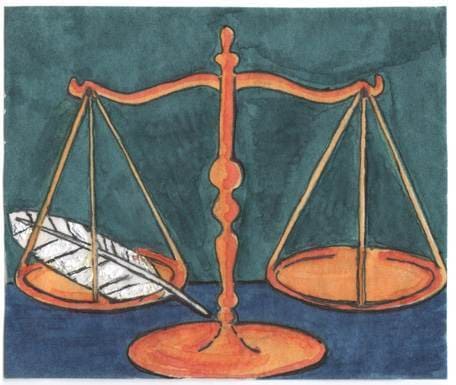Spiritual traditions generally portray the ego as a barrier we place between ourselves and divine transpersonal realms. In our personality trance we are amnesiacs, having forgotten our true identity, seeing only a fraction of what’s before us, unconscious to the ground of our being, the unregarded river of our life.
When the Enneagram is presented in a spiritual way, it is often as a “false self/true self” system. Your personality style is presented as antithetical to your true nature, a false earthly construct that alienates you from God. Your true self is spiritual and represents your divine essence, your original nature, before it was eclipsed by the false umbrella of your ego. Thus, your personality is basically a defense, representing your fall from grace, somewhat like the Christian notion of original sin.
But it’s more complicated than that. At bottom, your ego has a master function: to preserve your deepest sense of well-being and integrity. This means that your most ego-centered limitations are somehow metaphorically, unconsciously connected to the goal of protecting and maintaining the best in you – including your essential spiritual nature.
While you are ultimately not only your ego, your essence is not without form and even “enlightened” people have a quality to their experience that is tinged by their Enneagram style. The problem most people face is not that they have an ego but that they are hypnotized by its defensive distortions – distortions that can, in turn, symbolize their spiritual potentials. Vows to overcome or eliminate your ego, therefore, miss the point. Your “false” self is your true self in disguise and each compulsive expression of your Enneagram style is a warped expression of a healthy drive. Just as your personality defenses are an obstacle to your experience of your essence, they are also, paradoxically, the road to it.
There used to be a burglar protection device that was sold in big cities. It was an exact plastic replica of a slimy cabbage, equipped with an invisible side door. To protect your jewels, you would open the door, hide them in the plastic cabbage and then put the cabbage in the vegetable bin of your refrigerator. If a burglar ransacked your apartment and searched your refrigerator he would be repulsed by the rotting cabbage and leave your valuables alone.
Sometimes change is a matter of remembering where you have hidden your own jewels. Many secondary gains can seem senseless or perverse until you consider how they are attempts to maintain your integrity and well being. Whenever you can, it’s useful to try to trace a neurotic defense back to its healthy source.
Your ego may not know what year it is. When you are at your most distorted or defensive, you are often responding to an historical dilemma that you have unconsciously superimposed on a current situation. Most of the time you’ll find that you are dealing with a younger part of you who is coping in the present with the tools of the past in the best way it knows how.



